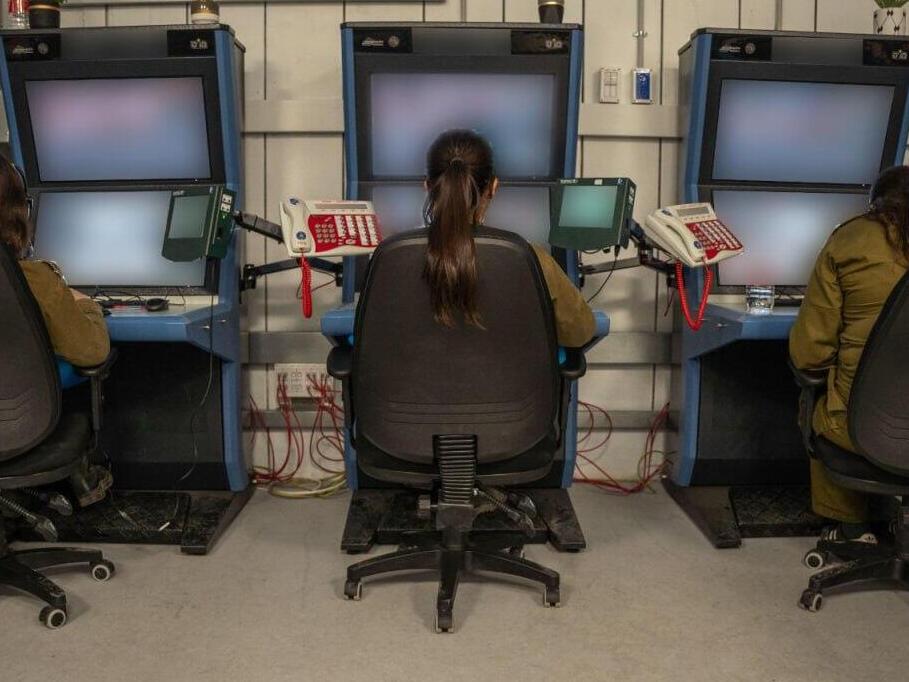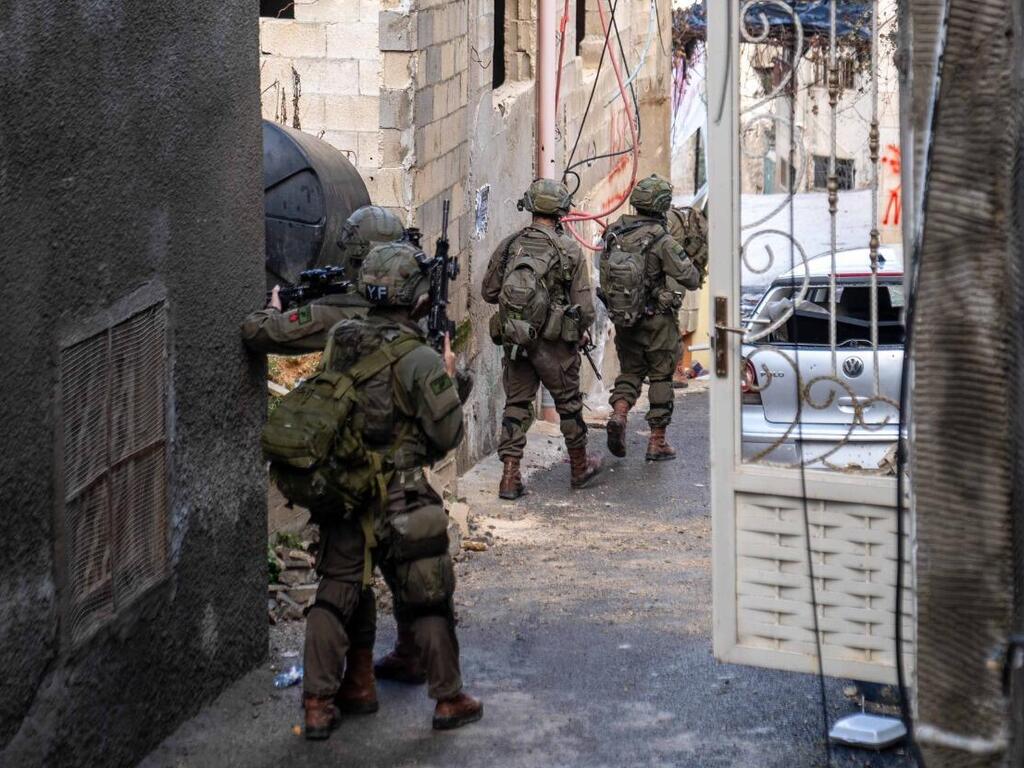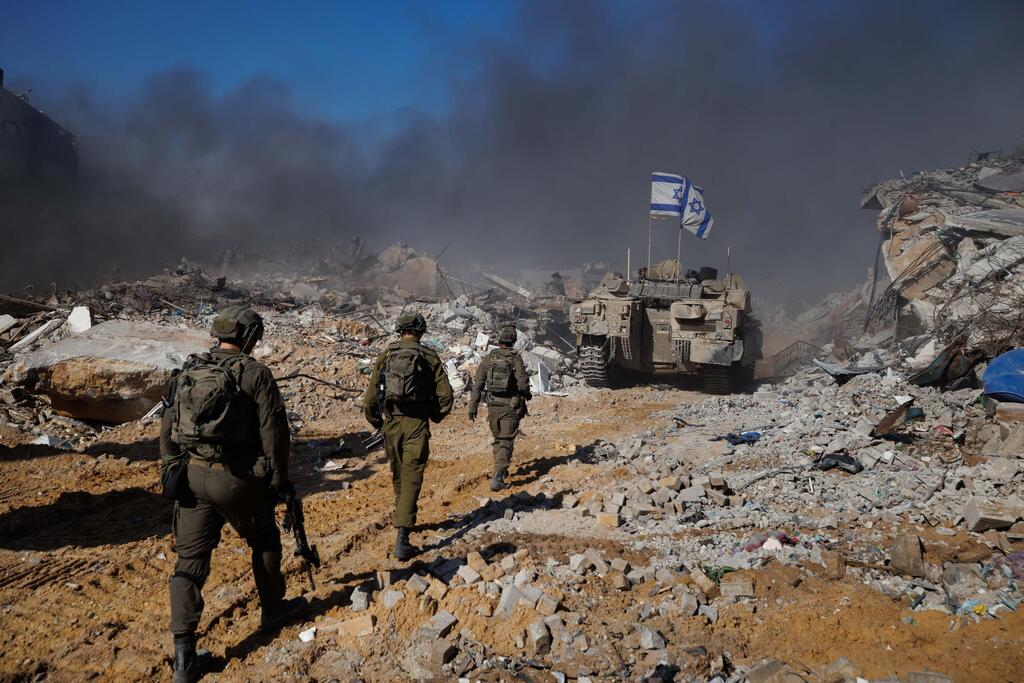Getting your Trinity Audio player ready...
The ongoing war has created significant new challenges for the IDF, and in some areas, it has struggled to address them. Among the concerns are the service conditions of reservists—many of whom left their civilian lives to defend the country—as well as those of female surveillance soldiers, whose critical role was underscored by the deadly Oct. 7 Hamas terror attack.
A report released Sunday by military ombudswoman Brig. Gen. (res.) Racheli Tevet-Wiesel found that complaints from reservists surged 88% last year. In total, 6,777 complaints were filed with the ombudsman's office in 2024, an 18% increase from 2023. The report, which was submitted to the defense minister and the Knesset’s Foreign Affairs and Defense Committee, found that 55% of the complaints investigated were justified.
Some complaints came from soldiers serving as lookouts, including those assigned to crucial intelligence positions. One soldier serving on the Egyptian border reported that while handling a security incident, her battalion’s deputy commander entered the command center and yelled: “Which surveillance soldier spoke to me? She’s delusional,” and referred to her as a “confused girl” and a “total mess.” The complaint alleged that the officer later told her commander, “If I were you, I’d give her two slaps.”
According to the investigation, the officer had been frustrated with the soldier’s response time during the incident. He later explained that his comments were made in the heat of the moment out of concern for the troops’ safety. Following the incident, the battalion commander reprimanded him, emphasizing the need for respectful communication.
The ombudsman wrote that the officer’s behavior was "severely flawed," adding, “A commander must act and speak in a respectful and restrained manner toward subordinates and set a personal example, regardless of dissatisfaction with their performance.” The report noted that the officer apologized and that no further intervention was deemed necessary beyond informing his superiors.
Concerns over lookout safety
Since the Oct. 7 attack, which saw dozens of soldiers serving as lookouts killed and others abducted by Hamas, many female recruits have requested not to be assigned to these positions. Some conscripts, even before starting their training, refused to serve in the surveillance unit and were detained at an IDF induction center. Complaints from those held in detention described harsh and degrading treatment by officers in the recruitment unit.
The ombudsman noted that most of these complaints were not fully investigated because the soldiers withdrew them after being released. However, she raised the issue with the commander of the recruitment unit at the time. Following a review, the unit decided to assign more experienced reserve officers to oversee detentions and ensure appropriate treatment.
Additionally, parents of surveillance soldiers expressed concern over their daughters being stationed in border outposts, arguing that their proximity to conflict zones placed them in unnecessary danger. Parents of soldiers serving near the northern border complained that, unlike in other regions, surveillance posts in their area had not been relocated further inland for safety reasons.
The division commander met with concerned parents, explaining the necessity of keeping surveillance troops near the frontlines to support field operations. He assured them that additional security and protective measures were being implemented to enhance their safety.
Rise in complaints over abuse and harassment
The report highlighted a sharp rise in complaints about commanders’ behavior, particularly from conscripts, who described harsh treatment and degrading language.
Get the Ynetnews app on your smartphone: Google Play: https://bit.ly/4eJ37pE | Apple App Store: https://bit.ly/3ZL7iNv
Some allegations involved physical violence and threats. Complaints included incidents of commanders kicking and choking soldiers, slapping a soldier in the face and making threats such as, “I’m about to put a bullet in your head.” One soldier reported being humiliated when his head was forcibly shaved in front of others. In some cases, the military police and prosecution were involved, while in others, senior commanders addressed the issues internally.
One female soldier complained that a senior noncommissioned officer insulted her, saying, “You should dye your hair blonde because you’re stupid.” The officer later admitted to making the remark, apologized and explained that it was said in frustration over her performance. The ombudsman reprimanded him and ordered that the incident be documented in his personal file.
Another complaint came from the parents of combat soldiers who said their sons' platoon commanders verbally abused them. One commander, who was later dismissed, allegedly called his troops “traitors” and ordered them out of their tent, telling them, “Get the hell out, you deserve this.” Another officer reportedly warned his soldiers to stay away from those he labeled "traitors." The involved commanders were disciplined, receiving detention as punishment.
In a separate case, a team commander was reported for routinely insulting his troops, calling them “losers,” “weaklings” and other derogatory names. He was reprimanded by his superiors, and a discussion on appropriate leadership was held with the unit.
Mistreatment over political views
Among the numerous complaints from reservists, one stood out: A soldier claimed he was dismissed from his unit not for his political activism. The reservist, who had participated in anti-government protests in 2023, alleged that his company commander used a minor infraction as a pretext for his removal, primarily due to his political views.
The ombudsman’s inquiry found that the official reason for the dismissal was cited as a serious disciplinary issue. However, she noted that the commander inappropriately referenced the reservist’s political affiliations during their conversation about his removal. While the investigation determined that the commander did take disciplinary action against others for similar infractions, the ombudsman stressed that political disputes should be defused early to prevent them from escalating into harmful exchanges.
Reservists report issues with payment and service record
The report also addressed a surge in complaints about reservist pay. Many reservists reported discrepancies in their service records that affected their compensation. The ombudsman attributed the issue to administrative overload, unit transfers and a lack of communication between military departments.
Specific complaints included unpaid standby duty, incorrect records of reserve days, incomplete compensation for reservists on extended active duty and delays in reimbursement for travel expenses. The ombudsman found that failures in coordination and a lack of familiarity with regulations had contributed to these issues, which affected the financial entitlements of many reservists.






